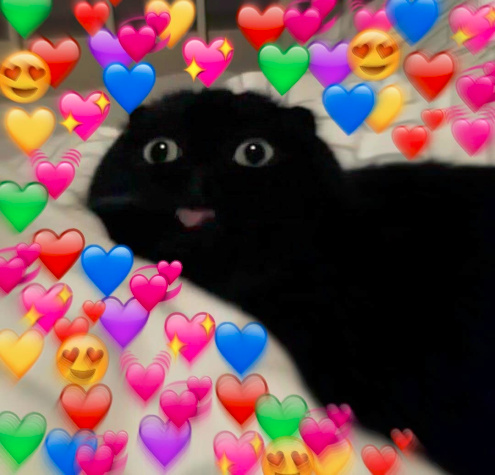sounds interesting but is this basically like dnd and will be done on the forums
eh idk if i have time or motivation for that with the community fm rn and also i’ve never done this type of stuff so i’ll likely just watch
sorry merc

sounds interesting but is this basically like dnd and will be done on the forums
eh idk if i have time or motivation for that with the community fm rn and also i’ve never done this type of stuff so i’ll likely just watch
sorry merc
it’s ok merc it happens we still love you

no it is very different.
in that it focuses more on rp and less on combat? that sounds nice
basically there is an entire section on the GM’s book on how it differs from traditional fantasy but summing it up: They are samurai. Nobles. They are cared for and given money by a lord, but are expected to die for them at any moment.
And what follows up is less combat. When they happen it is usually against other humans.
Unless you are on the Shadowlands. Being on the Shadowlands is asking to be attacked by demons.
sian Versus Narration
Western Narration
One of the most exclusive features of Legend of the Five RPG rings is that it is set in a world based on Asian culture, history and religion. As we have already discussed throughout this chapter, many fantasy RPGs are based in a western setting, usually pseudo-medieval in structure and concept, with a flexible social structure and few cultural rules or restrictions. In contrast, L5A depends on intensely from Asian culture - mainly from Asian culture feudal Japan, which forms the most direct inspiration for the game - to create the tone and atmosphere of your game, and imbue drama and emotional intensity in their narratives.
Why emphasize culture so much? It would certainly be possible to play L5R in a more western style as a game where Asian elements were little more than a backdrop background. But this would be little different than playing an RPG conventional fantasy with a change in the scenario of bottom. It would lose the unique atmosphere that makes L5A a game in itself.
What makes L5A “Asian” and not “Western” in style? The most basic element is the vital importance of society and culture. Characters are not lonely “adventurers” roaming the landscape - they are members of the samurai caste, with specific social role and duty. They have a master, a clan and an Emperor who are sworn as loyal vassals and unquestionable, willing to die at any moment. Furthermore, as samurai, they are part of an elaborate system
social relations, etiquette and traditions - a system that they must follow, no matter how cruel this may seem to them, because the alternative is disgrace or death.
The concept of a character trapped in the social order and moral rokugani, facing impossible choices between loyalties and conflicting expectations, is sometimes called “Samurai drama”, a concept very strange to many RPGs Western style. Samurai drama stems from the samurai (even samurai with supernatural powers) are human beings, with emotional needs, preferences and flaws that humanity suffers. The Bushido code and the social and cultural rokugani make demands that lead human beings normal to your emotional limits and beyond. Bushido hopes for perfection, but no human being is perfect. Even samurai, created in a tradition of absolute respect for Bushido and customs, can find situations where their emotions and innate humanity will clash with the demands of Rokugan, or where he finds himself unable to decide between conflicting loyalties.
A good L5R game makes samurai drama an element main part of his narrative. Emotional and psychological conflicts of the rokugani social order offer a much more challenging attractive to the character than any fight, duel or argument.
The essence of samurai drama and the most powerful element of story that the Master can create from it is an agonizing choice - for example, a choice between love and duty, or between loyalty to your clan or your friend. If the lord of a samurai order you to do something, but the voice of your ancestors tells you otherwise, who should he obey? For the virtues of Bushido he owes reverence and alliance to both. Such choices must be key points of any history and development of any character. Players will remember those moments more intensely than any mere combat.
The Hero in Asian Stories
The modern image of the hero expressed in many RPGs is distinctly western, perhaps even more “Hollywood”. He (usually a he, but the role seldomly changes when the gender does) is a lonely and powerful individual who denies authority and follows its own path, winning and triumphing in its own terms. However, Asian cultures tend to see heroes as people who preach moral principles - the principles of their society - in the face of bitter adversity or even in defeat. To them, the “Hollywood” hero doesn’t look much with a hero after all - he looks much more like a bandit or a criminal.
As an example, consider the Chinese folk hero Wong Fei-Hung, protagonist of countless kung fu films. Fei-Hung is a doctor, a respected member of society who values Chinese virtues and moral precepts. It is described as a wise and peaceful man, and uses his formidable skills kung-fu only when forced by the villains - who are invariably corrupt, violent and immoral individuals, do not rarely “tainted” by Western influence. Well away from the rebel Hollywood cop!
damn this sort of reminds me of the poppy war (book)
probably bc i just finished the first book like a few days ago tho
yes
oh shit! i love that type of stuff
Since I have a total of 02 people half-interested
pick which clan to post resume of next
0 voters

“Know yourself and you will never be defeated.”
✤ DRAGON CLAN ✤
Enigmatic and mysterious, the Samurai of the Dragon Clan have trod their own path since the Empire was created. More individualistic and less concerned with material wealth than other clans, the Dragon has much in common with the monks of Brotherhood of Shinsei, despite the considerable variety among their families.
Intra-clan relations: The Togashi follow their personal interests that are so secret that no one could detail them, which leaves the effective role of military leader with the Mirumoto daimyo, the largest family in the clan. The link between the Agasha and the Mirumoto is very strong, and students from both families are encouraged to observe students from the other and learn from them. This means that the Mirumoto are highly attuned to the Five Elements, and the Agasha understood the basics of strategy. There is a rivalry friendly between Agasha and Kitsuki. Shugenjas see investigators as their little brothers, sometimes calling them oto-oto / otouto (little brother) and imo-oto / imouto (little sister).
Togashi order ✣
“I don’t see more than you. You look to the wrong place.” - T o g a s h i.
A monastic order instead of a real family, the Togashi accept everyone who joins them, as long as they are able to embrace the order’s teachings and endure their tests, which many do not. Over the centuries, monks of this order have used the divine blood of the Dragon Kami to create mystical tattoos that grant them incredible supernatural powers.
+1 Reflexes Bonus
Kitsuki family ✣
“Every detail carries its implications of truth.” - Kitsuki Method.
The ever-perceptive Kitsuki serve the Dragon Clan as magistrates and representatives at court, though better suited to the latter. However, even at court, a Kitsuki’s ability to perceive the truth
when presented with lies it has always proved tremendous value for the Dragon in his quest for a Empire free of tricks and betrayal.
+1 Awareness Bonus
Mirumoto family ✣
“Defy Definition.”
The Mirumoto are the broad shoulders that carry the burden of the Dragon Clan. While the Togashi seek their unique path of enlightenment, the Mirumoto rule the clan in everything but name, overseeing their day-to-day operations and making up the army. Composing more than half of the Clan numbers, the Mirumoto are the samurai of the Dragon most easily found in the Empire.
+1 Agility Bonus
✣ Agasha family ✣
“Humanity is the only creature that discusses and can choose not to.” - A g a s h a.
The Agasha family was founded by a shugenja named Agasha, a follower of Togashi, the founder of the Clan Dragon. Your role is to be responsible for maintaining the knowledge of the dragon. They are the recorders of history and the observers of fate. Followers of the Path of Purification, their rules have been changed to allow retreat into the mountains while seeking enlightenment.
+1 Perception Bonus
i mean, if u could show all, that’d be pretty cool
they all seem really neat and i love fantasy politics cause it’s so much more fun than… real life ones… lol
but pick ur favs first if u want
hmmm
tbh i think i could make time for it
but only if it started after community fm finishes or after i die in it
Sorry
I don’t think I could
im about to multitab and trying to DM a DND session with the boys and trying to balance a game to host here
granted none of those are pressing all of those plus my parents yelling at me to get off my computer are 
When I have time between that ill probably read some of whats going on but I don’t think I could put a lot of time into it
feel you